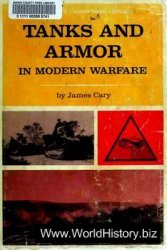The following three seasons saw Arsenal - and Chapman - equal Huddersfield’s achievement of the previous decade. The Gunners’ record over those three championshipwinning campaigns was impressive: they won 73 of their 126 league matches, were beaten just 24 times and scored over 300 goals.
Chapman’s sudden death in January 1934 meant that he did not see the triumphant completion of the hat-trick with either club. Yet no one was in any doubt as to who masterminded both achievements. Chapman was known for his attention to detail, and it was typical of the man that he insisted on watching his juniors play, despite the adverse conditions and the fact that he was already running a temperature. He contracted pneumonia and succumbed to the illness on 6 January. He was 62 years old.
Chapman the visionary manager
Chapman’s legacy stretched far beyond anodier domestic championship for the Gunners. He was a prescient manager and many of the ideas he championed came to fruition long after his death. These included the advent of night matches under floodlights, the use of numbered shirts and even tlie Champions League!
In many ways Chapman’s Arsenal side played in the modern style. The team was well schooled in the art of absorbing pressure, then quickly turning defence into attack. Swift counterattacking football is one of the hallmarks of the modern era, yet to the fans in the 1930s it often seemed that the Gunners won matches when they appeared to be on the back foot. This gave rise to the “Lucky Arsenal” jibe which stuck for so long.
Chapman was also ahead of his time as far as transfer dealings were concerned. In 1930 he signed goalkeeper Rudi Hiden from Wiener Sportklub for ?2600. International transfers of this type were almost unheard of, and this one sparked a row which is all too familiar more than 7 0 years later. The Ministry of Labour refused to sanction Hiden’s entry into the country, on the grounds that he would put a British goalkeeper out of work.
City Swift to react
Opposite above: Frank Swift, Manchester City’s 19-year-old goalkeeper clears from a corner kick in the 1934 Final at Wembley. After Cup Final nerves disrupted their performance in last year’s tie, Manchester City defeated Portsmouth 2-1 in a dramatic game. Portsmouth led until almost the last IS minutes of the match when Allen was knocked unconscious in the penalty area. While he recovered Tilson scored two goals in quick succession for City.
Opposite below: 1934: Arsenal’s first practice match of the season. Arsenal were the most successful team of the era. League champions in 1930-1 and 1932-33 and narrowly missing winning the Double in 1932 when they came second in the league and were runners-up in the Cup. However, disaster struck on 6 January when Herbert Chapman, manager and driving force behind their achievements, died suddenly. Director George Allison took on management duties and Arsenal finished the season on top of the First Division. Allison continued Chapman’s work in strengthening the side, signing centre-forward Ted Drake and wing-halves Crayston and Copping.
Referees under fire
Left: During a game against Chelsea at Stamford Bridge in 1934, Blackburn players appeal to the referee after a goal was given against them - proving that some aspects of the game remain unchanged even 70 years later.




 World History
World History









